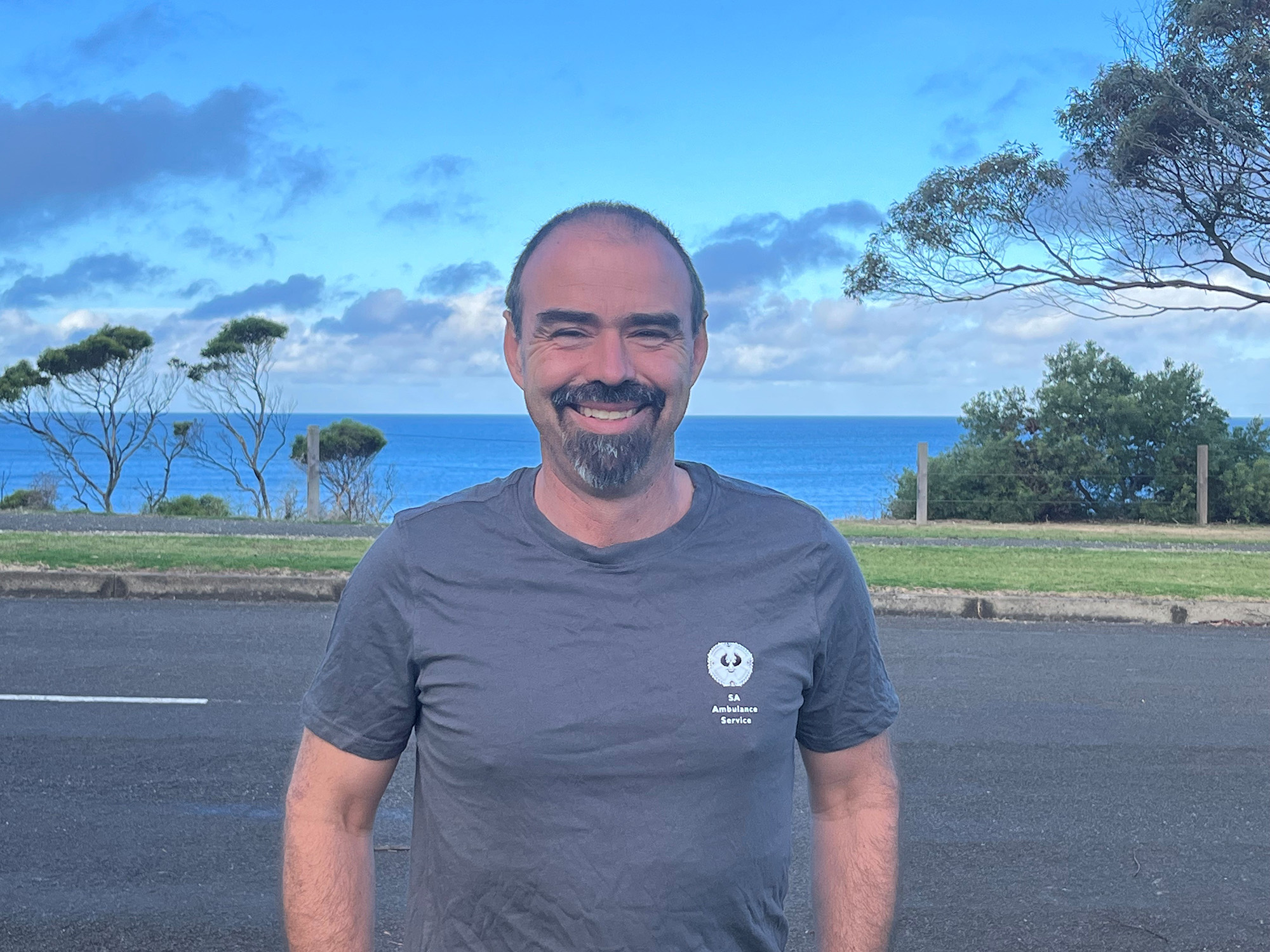
Diverse interests coupled with diverse skills and expertise means that Dr James Doube (BSc ’96, BM, BS(GradEntry) ’02) is making an extraordinary impact – in delivering rural and remote medicine, emergency medical retrieval with SA Ambulance, wildlife preservation, conservation activities, and helping to change the landscape of Antarctic islands.
Dr Doube, a general practitioner at the Kangaroo Island Medical Clinic and also a senior medical consultant with the MedStar medical retrieval service and SA Ambulance, developed an interest in conservation during his childhood in Strathalbyn, SA. The son of two veterinarians, Andy and Lib Doube, James grew up around animals before completing a Bachelor of Science in Marine Biology at Flinders University. He then worked in this department before going on to study Medicine, but remained intrigued that several Marine Biology colleagues travelled to Antarctica for research trips.
After graduating in 2002, he served several missions for the Australian Antarctic Division on Macquarie Island, as a rural and remote medicine GP Registrar from 2005 until 2011. He also led Search and Rescue Teams to develop emergency response capacity in this challenging environment and embarked on research and conservation projects in his “spare time”. His work on Macquarie Island’s Pest Eradication Program contributed to the complete eradication of all rabbits, rats and mice from the island.
“Macquarie Island used to be brown in summer because all the vegetation had been eaten by the introduced pests. Now it’s vivid green, and that vegetation can be seen from 10 kilometres offshore. This has led to permanent environmental benefits.”
His outstanding service to Australia’s Antarctic Program led to the Governor General presenting Dr Doube the 2012 Australian Antarctic Medal.
Success with this program led Dr Doube to also work with British authorities in helping eradicate pests from South Georgia Island. “By removing all the rats off that island, we’ve enabled more than 150 million pairs of breeding seabirds to return to the island for safe nesting,” he says.
Since completing his Antarctic-region projects, Dr Doube’s interest in emergency medicine has seen him serve on several humanitarian missions overseas with the Australian Medical Assistance Team, including a response to the ‘super-typhoon’ that decimated the Philippines in November 2013, and various missions to support healthcare responses to COVID-19 in Pacific countries.
Dr Doube also played a role in the 2018 rescue of 12 young boys and their soccer coach from a flooded cave in Thailand. As a friend of former Flinders University colleague Dr Richard Harris, Dr Doube joined satellite phone discussions from Adelaide with an international team to prepare the correct medication for applying underwater anaesthesia, so the boys could be safely stretchered out of the cave through a series of tunnels.
However, it is on Kangaroo Island that Dr Double’s multi-faceted roles now affect many areas in beneficial ways. As Acting Chief Medical Officer at SA Ambulance, Dr Doube was awarded a SA Emergency Services Medal in April 2021 for outstanding efforts and service during the 2019-20 bushfires on Kangaroo Island. Among his efforts, James worked with his veterinarian father in the heartbreaking task of euthanising injured animals.
While his own Western River property was among the first to be torched by the bushfires, he has now worked with Australian Wildlife Conservancy to erect a cat-proof fence to ensure a rejuvenated 400-hectare enclosure that houses native dunnarts, which is proving to be instrumental in boosting the population of this endangered species. “In the aftermath of such a tumultuous bushfire, I feel very fortunate to be involved with such a positive project to more forward,” he says.
His medical focus on Kangaroo Island finds him serving as a mentor to young medicos, teaching them how to thrive in a remote location. “We need more staff, and the shortage of people who want to come and to stay in remote locations is the great challenge facing rural Australia,” says Dr Doube. “Metropolitan areas don’t understand the complexity and breadth of what is required in rural medicine. It’s broader than metropolitan GP work, including elements of emergency medicine, surgery and anaesthesia – and if I can act as a guide through that, it’s a benefit.”
Dr James Doube AAM has received a 2022 Distinguished Alumni Award for his distinguished contribution to rural and remote medicine, and environmental conservation efforts.

